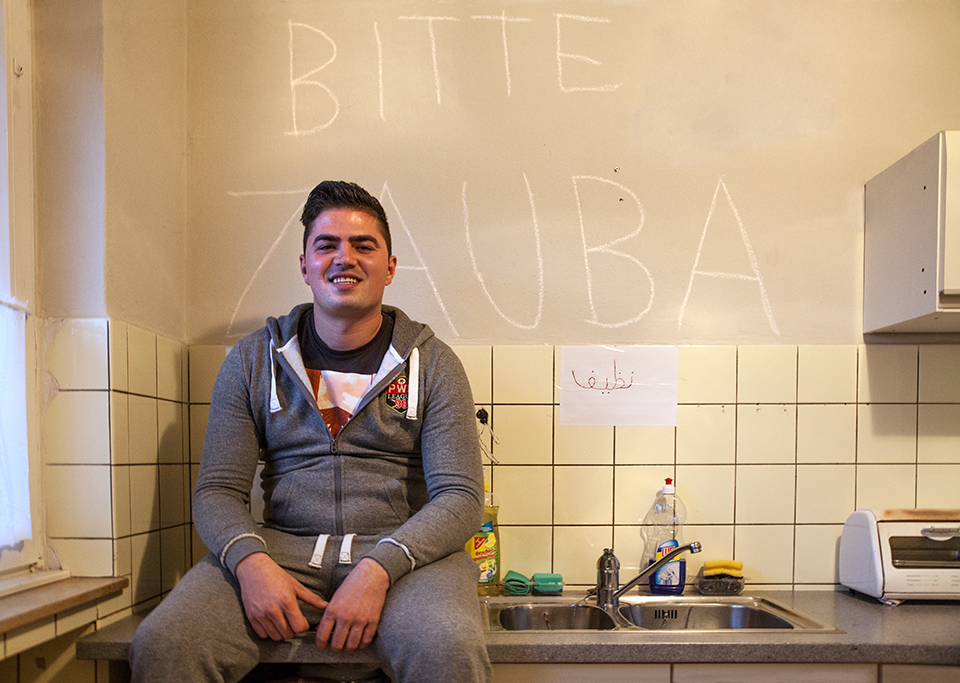Marjeta and Alim, Orest and Emanuela did not live through a war, they were not displaced and they did not risk their lives in a dighy on the Mediterranean. They are no refugees, that’s what they admit themselves. And yet they applied for asylum.
As absurd as it sounds, according to them they had no other chance. A job in Germany, they believe, could help their families pay their hospital debts and leave poverty behind. But there is no general visa procedure for the EU such as for the US or Canada. Without a concrete job offer they only stand a chance to get a residence permit if they apply for asylum.
Their stories cannot compare with the mortal dangers that many Syrians, Iranians and Afghans have fled from. But this comparison might be unfair, because they let us ignore smaller tragedies.
Marjeta is fluent in English and speaks some Spanish, but she has never left her country. She studied psychology – until her father was hospitalized with heart problems. In order to save her father’s life, Marjeta and her brother Orest had to dig deep into their pockets: They paid three Echocardiograms of 800 euros (900 US-dollars) each, several operations, bought three months worth of medication from the pharmacy and handed the nurses some bills – the usual procedure in a country that lacks health insurance.
But their pockets were not deep: They had to borrow 4,000 euros (4,500 US-dollars) from relatives and friends. When Marjeta’s university called for her tuition fees to be paid – 1,000 euros for her final year leading to the Master’s degree – she was out of money. She exmatriculated and took a full-time job as a cashier at 170 euros a month. “Still more than my mother earns by selling bananas in the street” Marjeta says half-jokingly. When their grandfather had to be hospitalized for a lack of oxygen, the siblings decided to break out of the vicious circle. The images of refugee processions on the Balkans which they saw on television seemed like an invitation: They, too, would go to Germany.
After the collapse of the communist Hoxha regime and the subsequent economic crisis, more than half of all Albanians live abroad today; their remittances make up one fifth of the GNP. Orest’s friends live in England, the Netherlands, Switzerland and Germany; a part of his family emigrated to Greece. He was 17 years old when he tried to come to one of the rich European countries for the first time. In an Italian port he hid in a container as a stowaway for two days without food and water until the police found him and sent him back.
All the Spanish telenovelas and Hollywood movies that they watched on TV in Tirana looked like mockery to Marjeta and Orest – and yet they turned them on again. They showed a world in which young people could find work and move in with their partner. A peaceful environment to start a family and to support their relatives in Albania is all the four are asking from life. Marjeta likes the Crassenstein Castle and the yellow autumn leaves, her boyfriend has his football training. Diestedde would be perfect.
“We have been a couple for 13 years already.” Marjeta smiles at Alim, who leans in the doorway. “But this is the first time we actually live together.” First they slept on air mattresses in a gymnasium, then the two couples shared one room in an appartment crammed with refugees. They recently graduated to private rooms for each couple, in which one bed just fits in; they share the kitchen with Georgians and Syrians.
“BITTE ZAUBA” Orest has written on the kitchen wall with chalk in German with a guessed spelling: “please keap cleen”. And again in Arabic: نظيف. He found the translation on Google Translate. Orest sees himself as unofficial caretaker of the appartment; he cannot wait to finally take over responsibility, to work. Orest is restless. He has already signed a contract as a metal worker with a company based in the neighboring village, but before he can start his job he needs a permit from the Social Welfare Office. And the permit does not arrive.
Marjeta is five months pregnant. In Diestedde she clearly saw a future for the first time. But her application for asylum has just been rejected. Gemany considers Albania a “safe countries of origin”. The couple formally objected the decision, but if that, too, is rejected, they can be deported at any time. “They are right,” says Marjeta. “Albania is too safe a country to die in, but it is also too poor to live in.”
Any questions or comments? Here on twitter: @chessocampo

